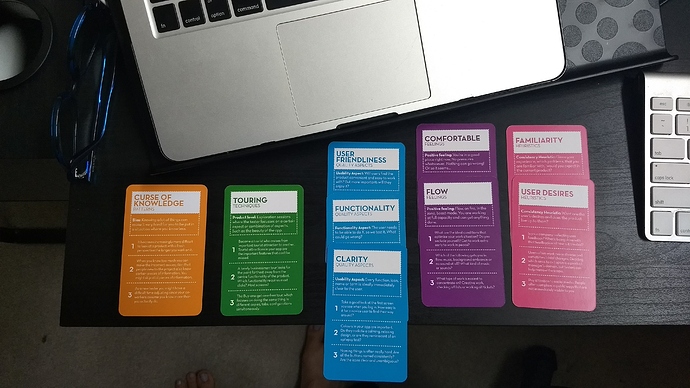Today, using TestSphere as I’m actually testing. I’ve laid down cards on my desk around areas of concern / interest, and I’m moving them to a “done” pile as I resolve those issues in my head. There’s something around the physicality of moving the cards around that is helping me focus on those areas.
2 Likes
